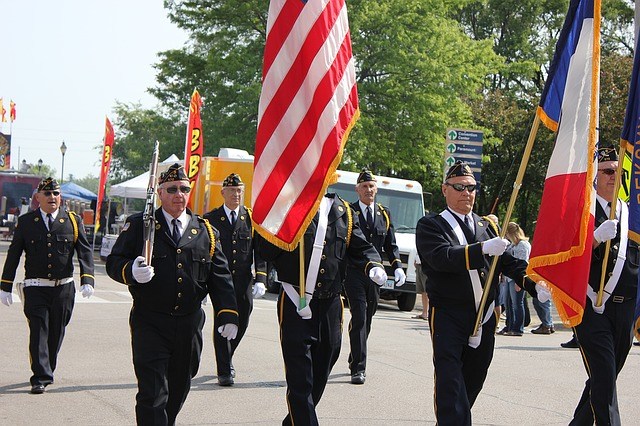American Legion survey indicates 92 percent of veterans support medical cannabis research
The American Legion, the nation’s largest wartime veterans’ service organization, is unanimous in its support for research on medical cannabis, according to a new survey released by the organization.
Thursday’s findings involve more than 1,300 respondents and indicate an overwhelmingly majority supporting legalization of the plant for medical purposes.
In the survey, 92 percent of veteran households said they supported research into the efficacy of medical cannabis for mental and physical conditions, and 83 percent believe the federal government should legalize medical cannabis nationwide. In addition, 82 percent indicated they would want to have medical cannabis as a federally legal treatment option.
“Support for medical cannabis, and research on medical cannabis is high across veterans and caregivers, all age ranges, gender, political leanings and geography,” said a memorandum from Five Corners Strategies, which conducted the survey for the Legion.
The Legion called on the Drug Enforcement Administration last year to reclassify cannabis to a category “that, at a minimum, will recognize cannabis as a drug with potential medical value.” They also asked the DEA “to license privately funded medical marijuana production operations.”
Verna Jones, the Legion’s executive director, said at a press conference, “People ask ‘aren’t you a law and order group.’ Why yes, we are, but we’re also a group that takes care of veterans. And when veterans come to us and say a particular treatment is working for them, we owe it to them and listen.”
This comes as a progressive move for an organization that represents many conservative veterans, and voters who largely voted for President Trump. However, the Legion is not advocating for social use of cannabis.
The survey was limited to a list of landline phones, that excluded veterans in wireless-only households and those in which a veteran’s household was incorrectly identified on the list. In addition, the survey recruited respondents through automated recorded voice, which does not provide the same results as a live interview.
“The federal government has lied to the American people for a generation about cannabis in asserting it has no medical value. I can tell you it’s not true,” Rep. Matt Gaetz said.
According to the survey, support for medical cannabis ranges from geography to political orientation and age.
- Geography: “The support for research and legalization is spread across the country, in states where medical cannabis is currently legal and in states where it is not.”
- Political orientation: “Among veterans and caregivers federally legalized medical cannabis is supported by about 9 in 10 self-identified liberals, almost as many conservatives and 7 in 10 independents.”
- Age: “While support for medical cannabis research and legalization drops the older veterans and their caregivers become, it remains strong even among senior citizens. Among those 60 and older, more than three-quarters favored medical cannabis. All in the 18 to 30 age group agreed.”
“It is also clear from the survey that veterans are accessing cannabis to assist them in states with and without medical marijuana programs,” Five Corners added.
Another pool released in March by Yahoo News/Maris pool indicated 84 percent respondents support medical cannabis, including majorities of Americans of all ages.
Last week, the House Committee on Veterans’ Affairs urged the Department of Veterans Affairs (VA) to research the impact of medical cannabis on chronic pain and post-traumatic stress disorder among veterans; however, the VA has not changed its policy yet.
VA Secretary David Shulkin said she will be willing to examine medical cannabis when federal law allows.
“There may be some evidence that this (medical marijuana) is beginning to be helpful,” Shulkin said in May, when he last commented on the issue. “And we’re interested in looking at that and learning from that. But until the time that federal law changes, we are not able to be able to prescribe medical marijuana for conditions that may be helpful.”










